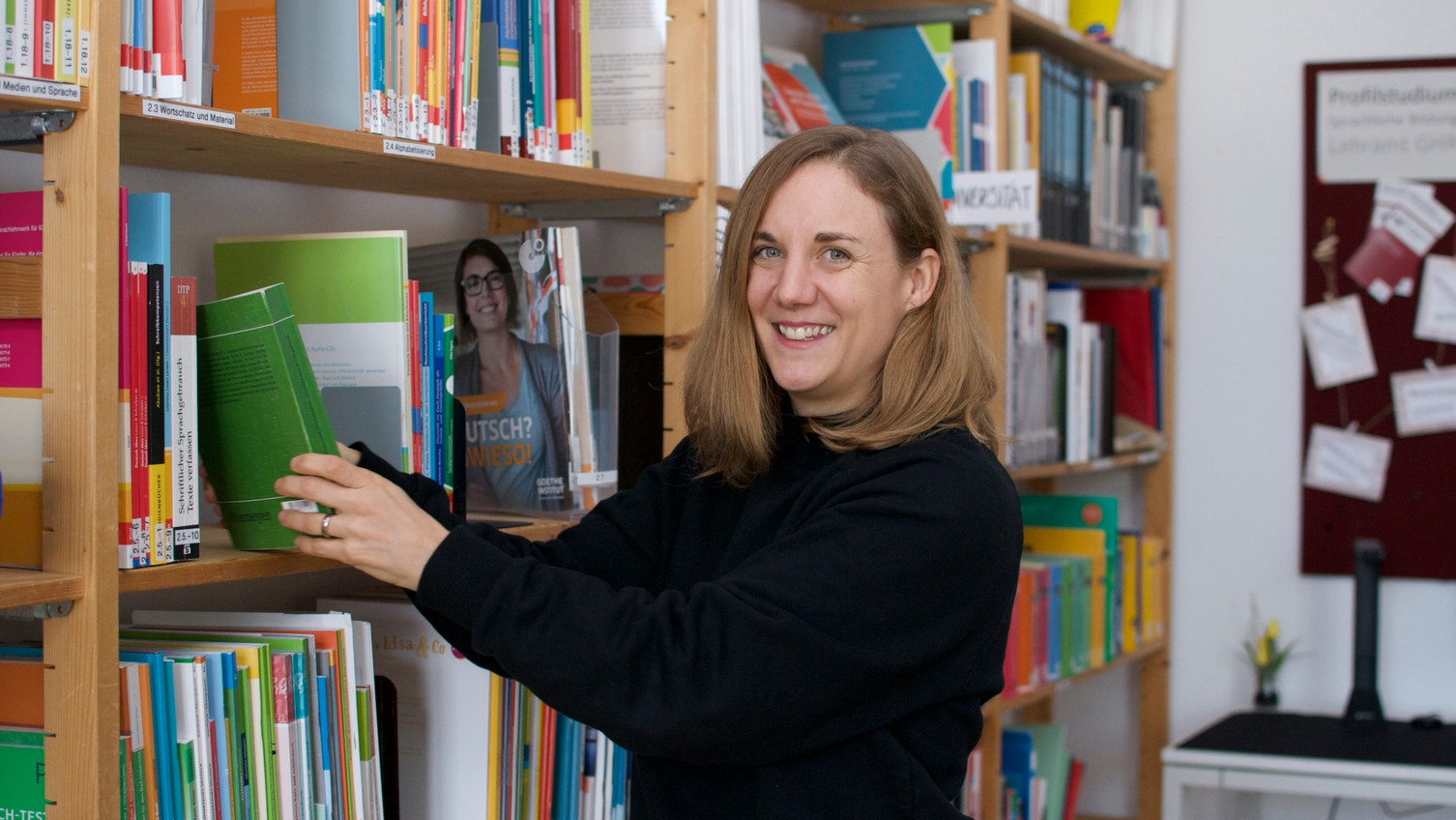“Language change doesn't have to be a bad thing.”
Series “How does science inform politics?”: Prof. Dr. Karina Frick
2025-08-28 In the series “How does science inform politics?”, we introduce Leuphana researchers who share their expertise in policy advisory boards. Prof. Dr. Karina Frick, for example, has been a member of the Council for German Orthography since the beginning of 2024. In her research, the junior professor of applied linguistics asks contemporary questions, such as whether emojis are just for people who are lazy about writing.
Anyone who uses social media has probably noticed this: “Orthography is used as a weapon there,” says Karina Frick. People often make fun of others whose posts contain orthography mistakes on these platforms. “They argue along the lines of, ‘If you can't write properly, you can't join the discussion’ – even in a space that is supposed to be free of norms,” explains Karina Frick. This says a lot about how important orthography is to many people, according to the junior professor of applied linguistics at Leuphana University Lüneburg.
The meta-level, i.e., talking about language, is incredibly interesting to me," says the researcher. Since the beginning of 2024, she has had even more opportunity to do so than through her work at Leuphana. That's because she is now a member of the Council for German Orthography, the intergovernmental body that develops orthography rules across Germany.
The 41 members review whether the existing rules are still appropriate, adapt them if necessary, and publish the binding official rules for German-speaking countries. The rules laid down in these publications can be found, for example, in the Duden dictionary, whose editorial team also sits on the council, and in the auto-correct function of word processing programs.
Karina Frick represents Liechtenstein on the council – she was born there. In addition, the Council was established in December 2004 by Austria, Switzerland, South Tyrol, the German-speaking community of Belgium, and Germany. The committee is commissioned to carry out its work by government agencies.
Frick's fascination with language issues was awakened at the very beginning of her studies: During her bachelor's degree, she took a seminar that focused, among other things, on language use in daily soap operas. “It was an eye-opener in terms of what you can do research on, recalls Karina Frick, who therefore decided to focus exclusively on linguistics for her master's degree. Her doctoral thesis explored grammar in Swiss German text messages. She has not been concerned with orthography for very long. It was only when she observed how language is used on social media that her interest was piqued.
Karina Frick's research therefore has a very practical foundation. The German Orthography Council often deals with similarly real-life issues. She cites one example: the use of the gender star, which has been the subject of intense debate not only in politics and society. “But I wasn't a member of the council when the topic was discussed,” says Frick.
The members of the council are divided into three working groups (AG): AG Writing Observation and Lexicography, AG Learning and Teaching, and AG Linguistics. Karina Frick is co-chair of the latter. The council meets twice a year to exchange views and clarify fundamental issues.
The working groups also report on their meetings, which take place between plenary sessions as required. The Council usually meets at the Leibniz Institute for the German Language in Mannheim, where the office is located. However, the Council occasionally meets in the members' countries – Karina Frick is currently preparing a meeting in Vaduz (Liechtenstein) for October 2025, for example.
The members of the Council for German Orthography work on a voluntary basis. They come from professions that are particularly qualifying for the work of the Council. They include not only academics, but also language practitioners from the publishing industry, newspaper and magazine publishers, and the fields of education, journalism, and writing.
They come from seven countries and regions: 18 members are from Germany, nine each from Austria and Switzerland, and one each from the Principality of Liechtenstein, the Autonomous Province of Bolzano-South Tyrol, and the German-speaking community of Belgium. The Grand Duchy of Luxembourg participates without voting rights.
Frick's former high school teacher, Renate Gebele Hirschlehner, recommended her as her successor. She retired at the beginning of the 2022/23 school year after 17 years on the council, where she championed German orthography. Karina Frick moved from Liechtenstein to Zurich to study, then worked at the University of Lausanne, the University of Basel, and the PH Zurich before coming to Lüneburg.
And how does society benefit from her work on the council and at the university? “It would be nice to raise awareness of language use. Many people think that orthography is a fixed category that never changes. But it is not a rigid construct,” says Karina Frick. She adds: “I try to show people that language change is not necessarily a bad thing.”

